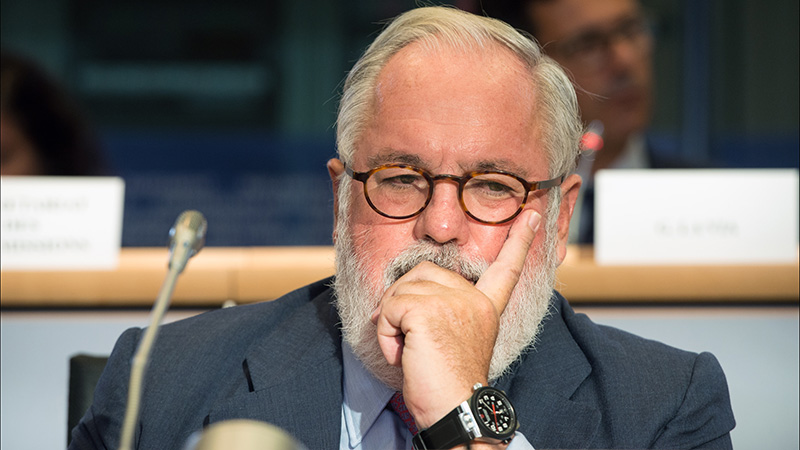The EU’s energy chief will meet with leaders in Tehran from Friday to discuss implications of US sanctions on energy supplies from Iran.
The renewal of US sanctions after Donald Trump’s decision to withdraw from the Iran nuclear deal has raised questions about a number of major energy initiatives. Companies are concerned Iranian ties could incur penalties from the US.
On Friday, European commissioner for climate change and energy Miguel Arias Cañete flew to Iran. He will meet ministers from the petroleum and energy departments and well as foreign minister Mohammad Javad Zarif on a three day visit to the capital.
“The objective of my visit is to continue to strengthen energy relations with Iran, most importantly now against this new challenging background of president Trump’s announcement,” Cañete said in a statement on Friday.
The EU’s trade with Iran grew 60% between 2016 and 2017 – after the signing of the nuclear deal – said Cañete. “The European Union is fully committed to ensuring that this continues to be delivered on.”
In the past week, French company Total has announced that, unless it gets a sanctions waiver from the US, it will withdraw from the South Pars 11 oil project in Iran.
Earlier this year, the European Commission said it was looking to open talks with Iran regarding gas supply to the continent through the Southern Gas Corridor (SGC), a huge pipeline under construction.
BP is the major shareholder in the SGC, which will carry gas from Iran’s neighbouring Azerbaijan to Italy. A spokesperson for the company told Climate Home News: “We take great care to ensure we always comply with applicable sanctions.”
“There is no entry point into the SGC at present that would allow Iranian gas to enter the system. All initial flows of gas will be from the Shah Deniz field in Azerbaijan. Shah Deniz operates in full compliance with all US sanctions,” said the spokesperson.
The SGC is Europe’s largest fossil fuel project, is deeply unpopular with climate NGOs and has attracted billions of dollars in public finance. Cañete backs it as a way to diversify Europe’s gas supply away from Russia. US sanctions raise questions about the option to diversify with Iranian gas.
The talks in Tehran come a day after the European Commission president Jean-Claude Juncker deepened Europe’s war of words with the US over Donald Trump’s decision to withdraw from the Iran nuclear deal and proposed tariffs on European goods.
Speaking on Thursday, Juncker said if the US exempted the EU from import tariffs, the bloc would consider buying more liquefied natural gas from the US. Otherwise it would look elsewhere for energy supplies, he hinted, saying the commission may use a 1990s law to ban European companies from complying with US sanctions on Iran.
“The American sanctions will not be without effect. So we have the duty, the Commission and the European Union, to protect our European businesses,” said Juncker.
